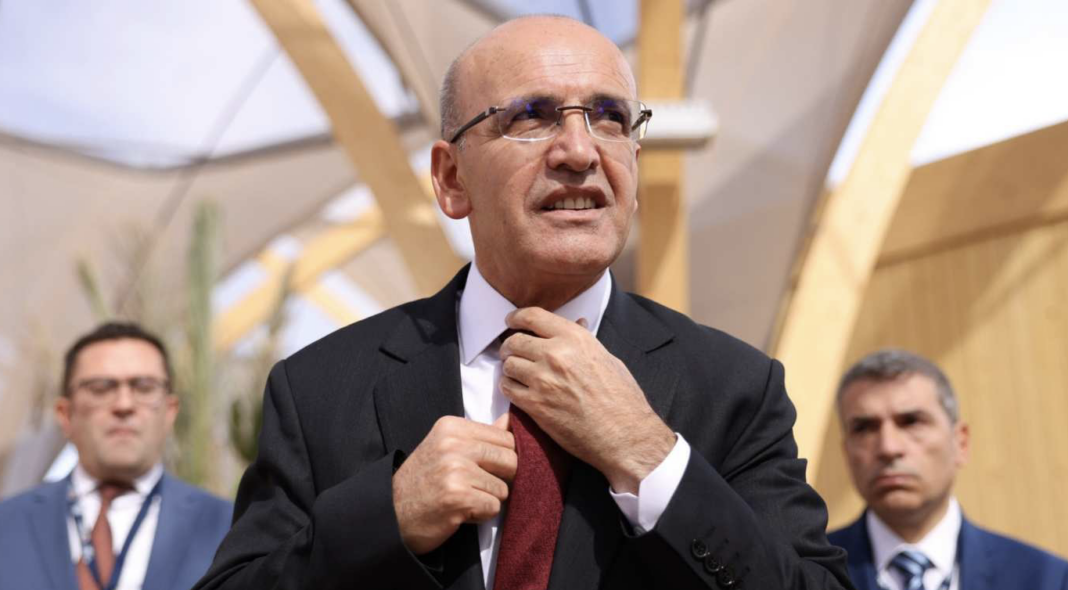Finance minister Mehmet Şimşek has emerged as a key source of stability
February 11, 2024, Financial Times
Please use the sharing tools found via the share button at the top or side of articles. Copying articles to share with others is a breach of FT.com T&Cs and Copyright Policy. Email licensing@ft.com to buy additional rights. Subscribers may share up to 10 or 20 articles per month using the gift article service. More information can be found at https://www.ft.com/tour.
https://www.ft.com/content/fc87f750-3103-4ea6-938d-ded2e729aa7a
The abrupt resignation of Turkey’s central bank governor this month might have been expected to cause investor jitters that the country’s shortlived experiment with monetary orthodoxy was over. That the market response turned out to be so muted shows that the real power in the country’s economic leadership now rests with the finance minister, Mehmet Şimşek.
Hafize Gaye Erkan quit less than a year into her tenure at the central bank, citing a campaign against her in the press. This was a blow, as the US-educated Erkan — at 44, Turkey’s first female central bank governor — had taken an uncompromising stance on the country’s once flaky monetary policy.
President Recep Tayyip Erdoğan appointed Erkan last June. Seemingly with his blessing, she immediately embarked on a campaign to tackle chronically high inflation. In total, she delivered some 36.5 percentage points in interest rate rises — a tool Erdoğan had previously denounced as “evil”.
Her resignation briefly felt like a return to the bad old days, when Erdoğan chewed through a series of governors who did not share his rather eccentric views on interest rates. He also appointed his thinly-qualified son-in-law, Berat Albayrak, to the post of finance minister. Foreign investors took fright at the rapid turnover in central bank chiefs from 2016 and their frequent reluctance to defy Erdoğan and raise rates. Crisis-level ructions in Turkey’s bonds and currency ensued. For many, the country became simply untouchable.
Unlike previous defenestrations, though, Erkan’s departure made barely a ripple in markets. In part that is because her replacement and former deputy, Fatih Karahan, is himself no slouch, with a background spanning the University of Pennsylvania, the New York Federal Reserve and Amazon. Analysts such as those at Goldman Sachs described him as “respected” and noted that Erkan’s exit was not rooted in policy disagreements. That points to potential continuity.
But the real key to the calm tone in markets is the reassuring presence of Şimşek, the former Merrill Lynch banker who left an 11-year stint in top economic positions in Erdoğan’s government under fraught circumstances in 2018 and was brought back in to the fold after last year’s elections.
Şimşek knows that markets matter for Turkey, which needs foreign investors to buy its bonds. The Turkish media’s hostile depiction of sinister and conspiratorial foreign investors has, thankfully, melted away. He also knows citizens suffer from yet more price rises on imported goods when the currency crumbles. He recognises the need for continuity in economic policy and stability, particularly in inflation.
The central bank is nowhere close to achieving this yet — annual inflation is still running at close to 65 per cent. Still, fund managers trust Şimşek to lead this job and, crucially, to keep Erdoğan on side, and have proven willing to dip back into Turkish assets for the first time in years since his reappointment. Karahan is Şimşek’s pick for the central bank, and for Wall Street analysts and investors, that is pedigree enough.
Today’s situation is a vast improvement on that of five years ago. But it is still not ideal. The weight on Şimşek’s shoulders is substantial, and it is unhealthy for investors to run such intense key-man risk. A broader set of well-respected figures in the upper echelons of Turkey’s economic machinery would be highly desirable as evidence that Erdogan’s conversion to orthodoxy is deep-rooted. For now, mutual mistrust between the president and western fund managers still simmers. Investors are placing a lot of faith in Şimşek as the crucial whisperer between them.

